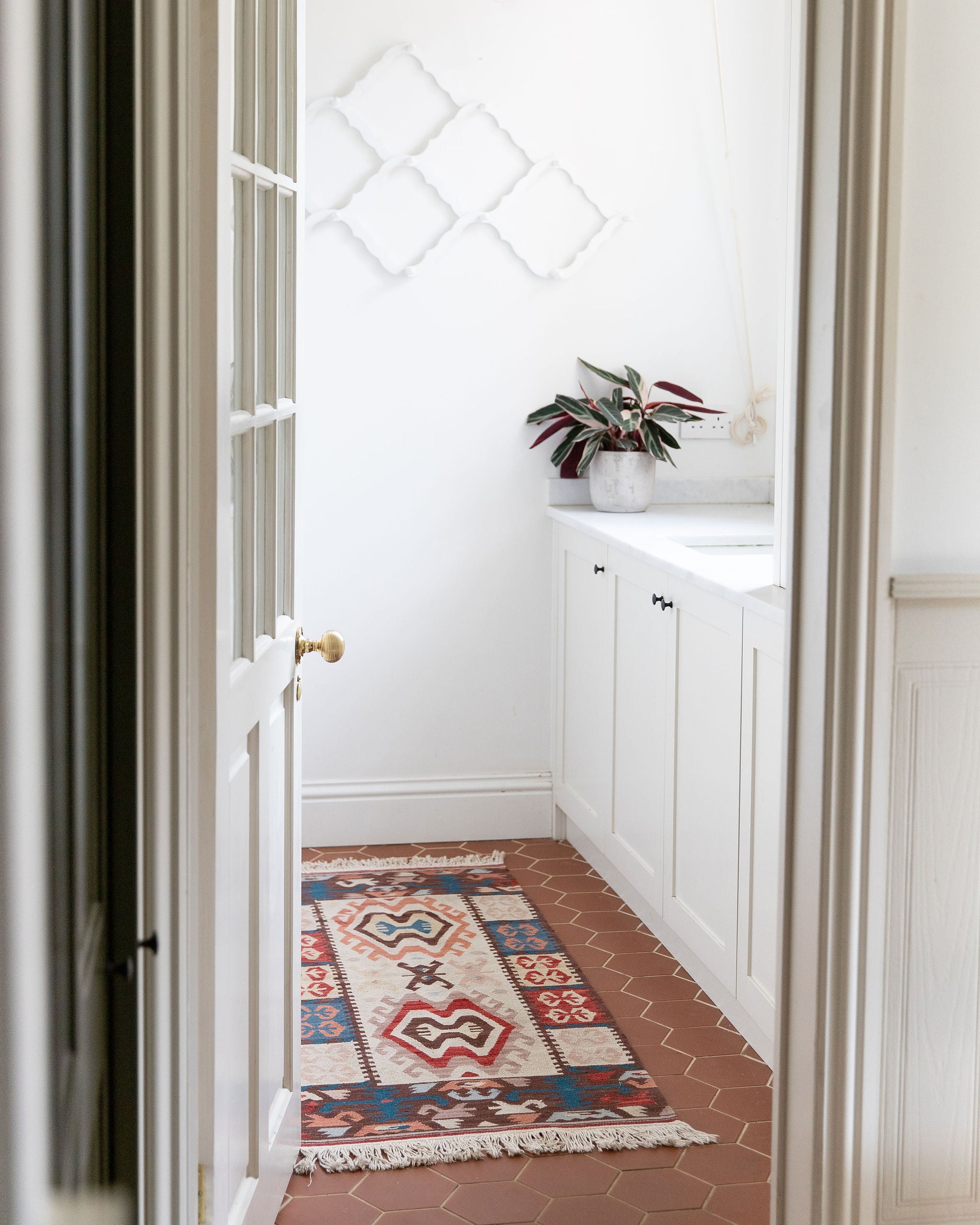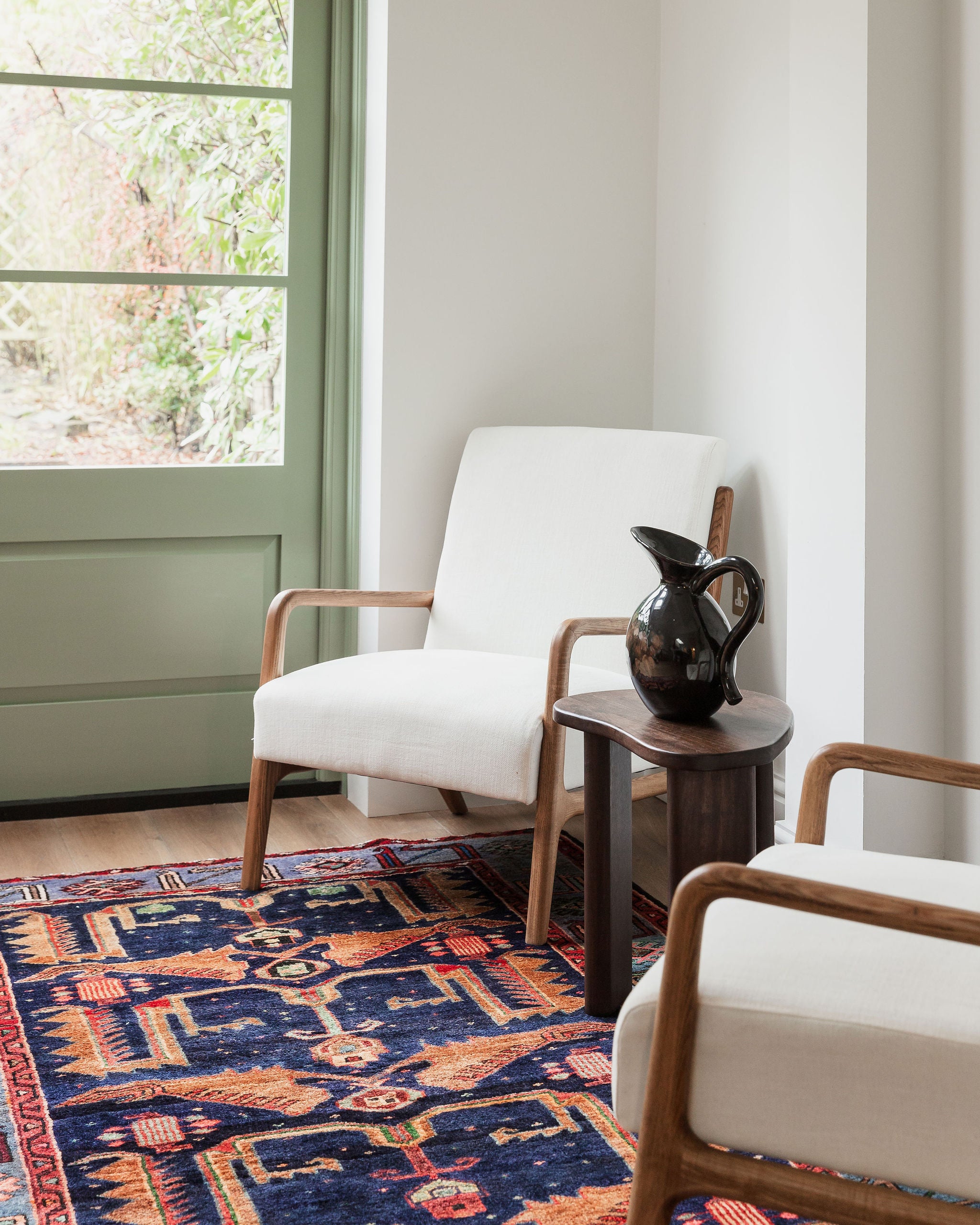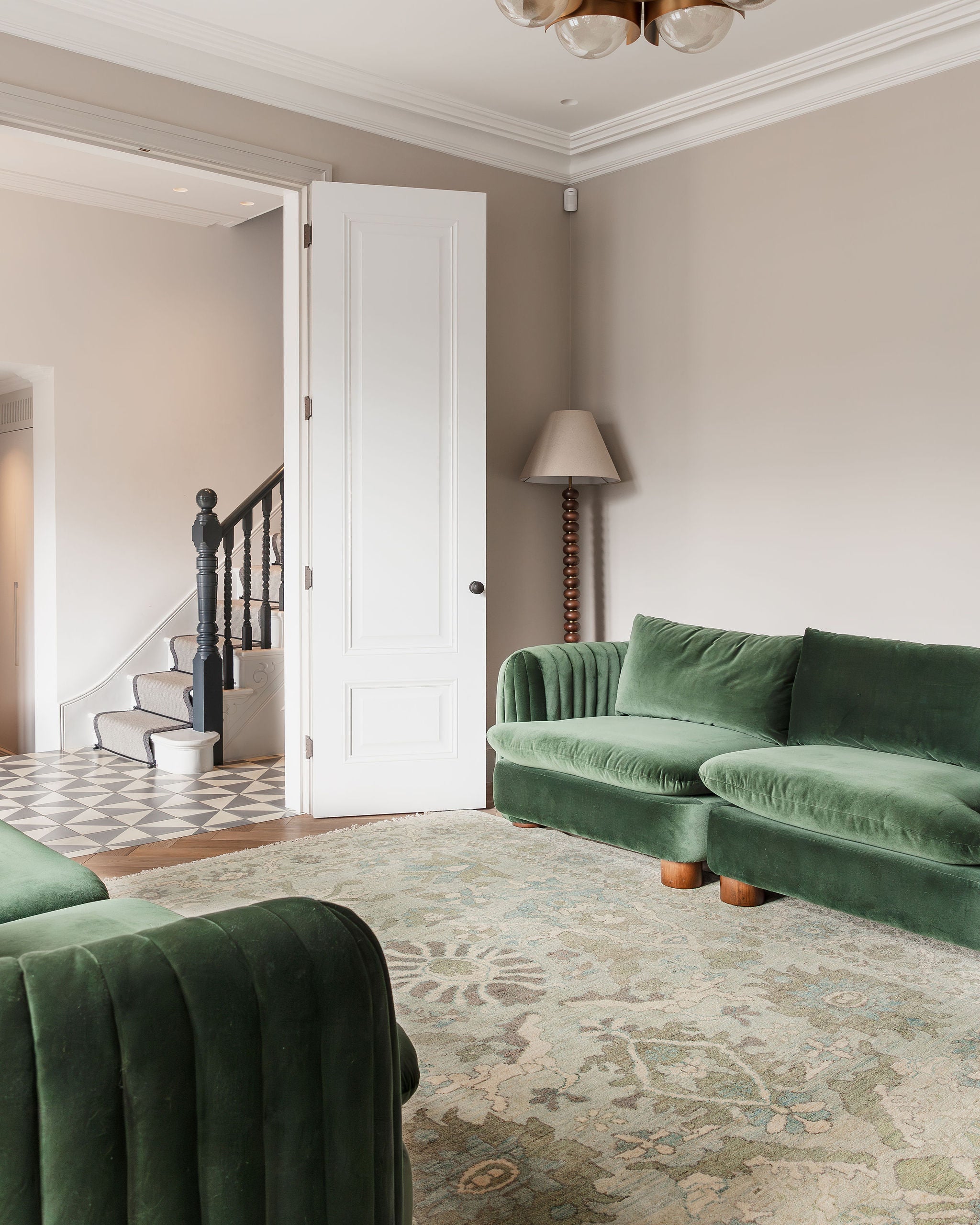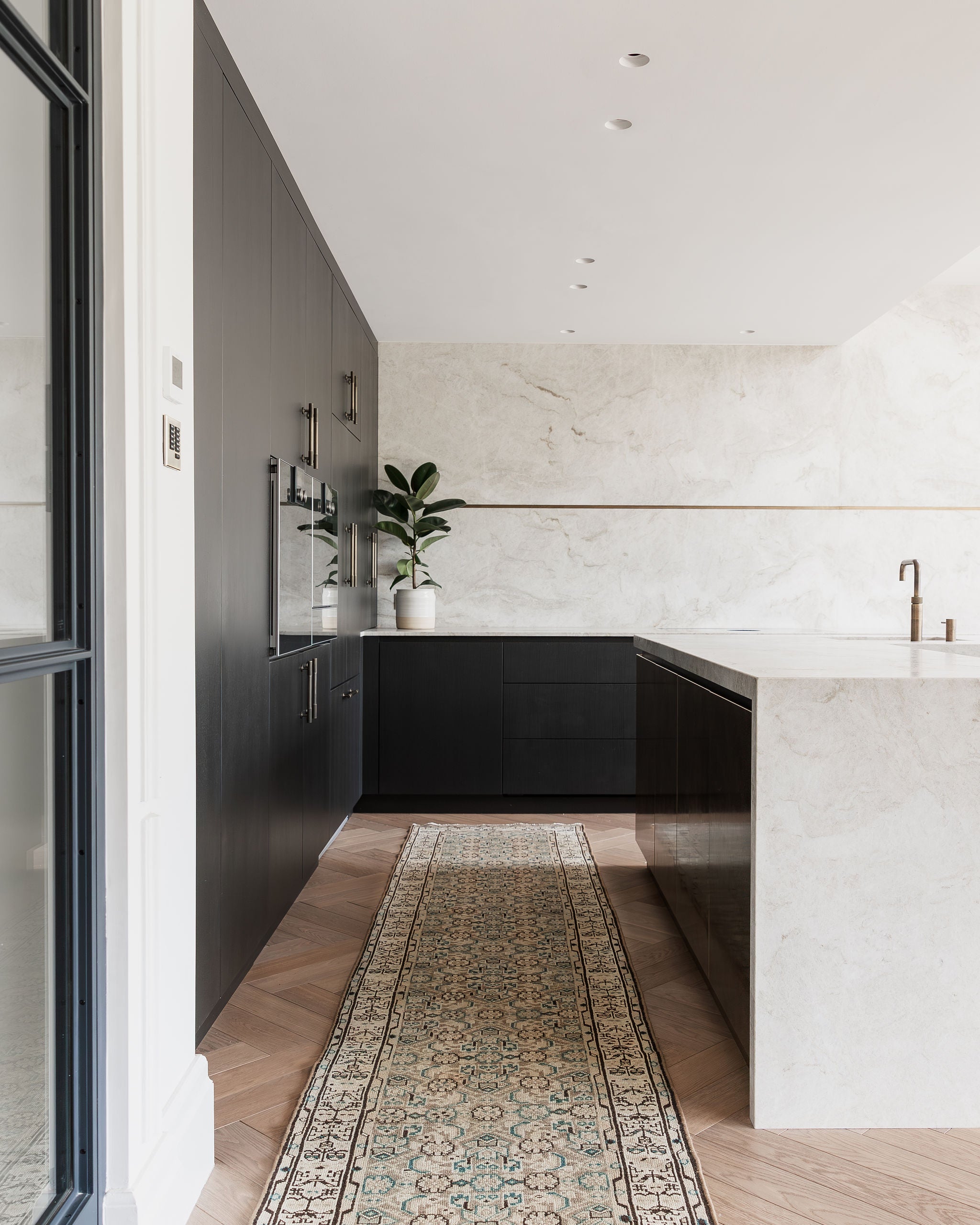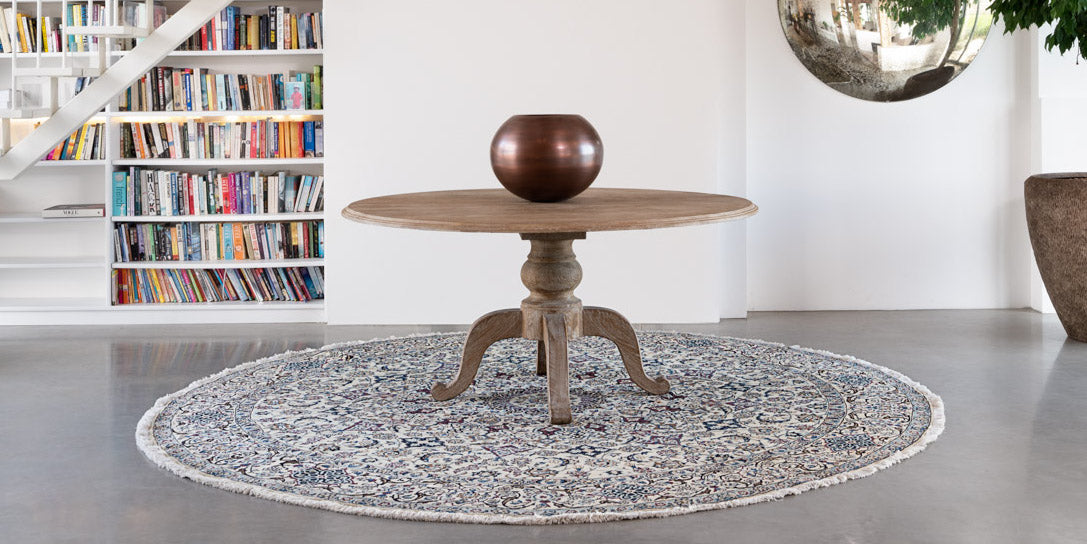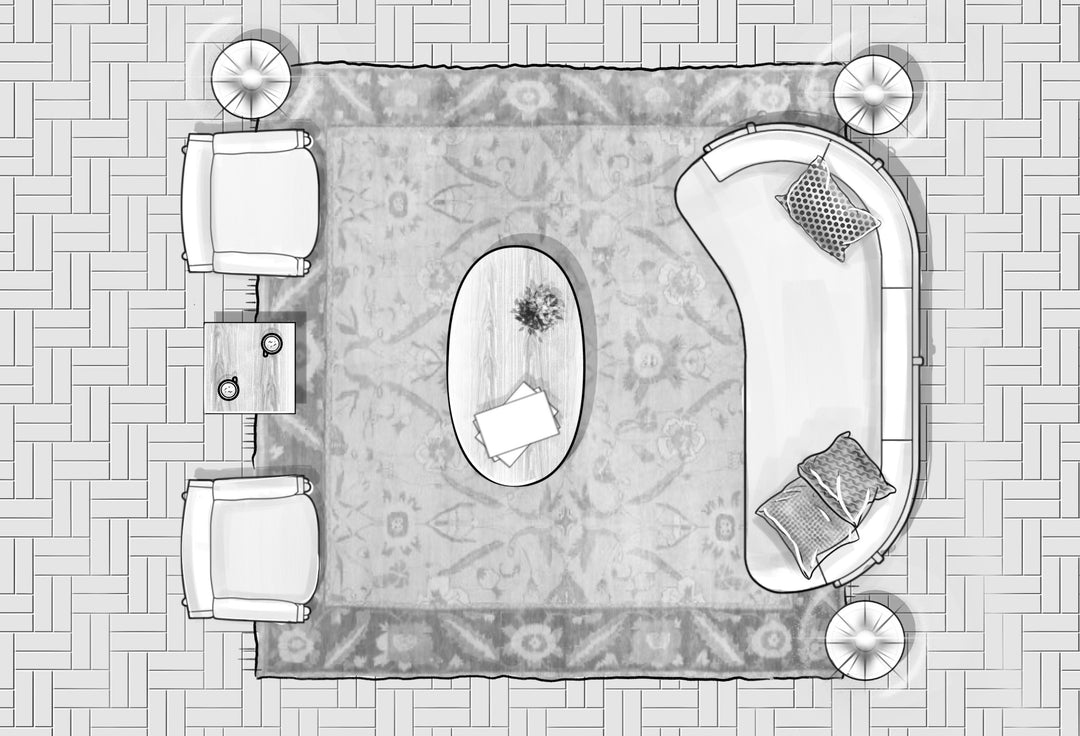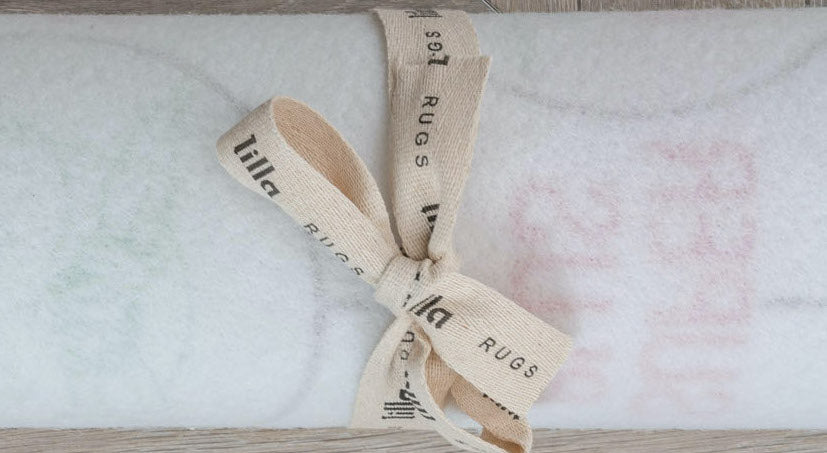What makes a Kilim different to other handmade rugs?
Right, first things first, what does 'Kilim' mean and where does the term come from?
The word ‘Kilim‘ is of Turkish origin and basically refers to a pileless textile. The pile is simply the rug term to describe the surface of the rug, and how dense it is. For example, a Moroccan Berber Beni Ourain rug has a thick pile - it is a thick/ fluffy/ heavy rug. Whereas a Kilim rug is flat & thin.
How Kilim rugs are made -
The main difference between a Kilim rug and other types of handmade rugs is that a Kilim is a flatweave (as touched on above). What is a flatweave? Flatweave describes a rug that is woven on a loom rather than knotted (by hand one knot at a time). It is created by interlocking warp (vertical) and weft (horizontal) threads. So still very much made by hand - but with a weaving technique, rather than a knotting.
Handmade rugs that have a pile, and are therefore not flatweaves, are created by knotting individual strands, of different colours, onto the warps. They are then held together by tightly pressing the wefts against each other.
The recognisable design features of a Kilim rug -
Kilim rugs are recognised by their simple and bold geometric designs. They are sometimes referred to as 'slit-woven' textiles. This is down to the design feature you'll see if you look close - small vertical slits along the edges of the patterns, between the different areas of colour/ where the different colours meet. The slits are desirable as they highlight the geometric shapes and give the design a 'HD' effect.
What material are Kilims made from?
The vast majority of Kilims are made from 100% wool. In some cases, the warp will also contain cotton.
Wool is a great choice for rugs. It is widely available, hardwearing, easy to handle and the vegetable dyes take to it perfectly.
Why do Kilims cost less than most other handmade rugs?
There are lots of different factors that contribute towards the cost of a handmade rug - check out our blog post that does a deeper dive into why Persian rugs are on the higher end of spend. The main reason Kilim rugs are lower in cost, is because of the amount of time, effort and skill that goes into the making of them. They are brilliant quality and beautifully crafted, but due to the way in which they are made (flatweaved as explained above) they do not take as long as hand knotted rugs and do not require the same level of skill to make.
Hopefully now you have a hold on what a Kilim rug is and what makes them different to other types of handmade rugs. So here are 5 benefits of Kilim rugs -
1. Seasonal
Kilim rugs are suitable all year round. Rugs have been used for better insulation in winter months for centuries, and Kilim rugs won't let you down for this purpose. However, unlike heavy pile rugs, flat woven rugs are lightweight and breathable and so trap in less heat in the summer months. That's why they are often the popular choice for conservatories and for hotter climate countries.

Lotus Persian Senneh Kilim Rug
2. Family friendly
High traffic zones, where the little ones play, where the dog spends most its time - all probably not the most popular places to put a high-value antique or Persian rug. Flatweave rugs are super easy to clean, easy to handle/ move around, and are of course of lower value, so are perfect for areas in the home that tend to need a lot of cleaning. They're often known to be the kitchen rugs for this reason.

PHOTOGRAPHY BY VENEER DESIGNS, Blog Post by Domino
3. Bright & bold
You can find Kilims is so many different colours and they are usually bright and bold. They are perfect for injecting a splash of colour into a space, or for having a bit of fun with!
Classic Kilim Rug at Lilla Rugs
4. Great if you have a lower budget
As we've touched upon, Kilim rugs are very affordable, even at large sizes. If you have a tight budget for your rug purchase, they're a great place to start.
Classic Kilim Rug at Lilla Rugs
5. They don't shed
As Kilims have no pile, there is no chance of having a shedding rug on your hands! Less dust will be collected and so lower quantities of allergens too. Low maintenance rug for sure.

So that's it! You're now a Kilim PRO!


